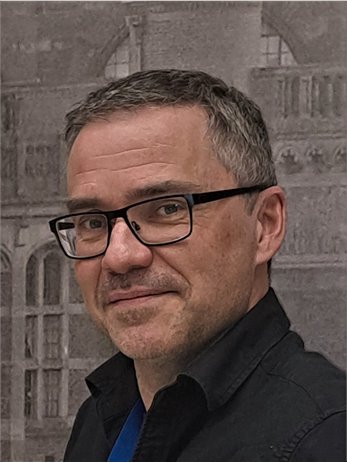Inaugural Lecture of Professor Andrew Bagshaw
- Location
- WG5 - Aston Webb Building
- Dates
- Tuesday 22 October 2024 (16:00-18:00)
Join Proessor Andrew Bagshaw for his Inaugural Lecture, hosted at Aston Webb, Lecture Theatre WG5 (R39 on the Campus Map) on Tuesday 22 October 2024. This is a hybrid event: you can register for virtual access via Zoom here.

From Erbium to the Thalamus
Studying the human brain comes with some constraints, not the least of which is that in most cases brain structure and function need to be measured non-invasively. Participants need to leave the Centre after testing with everything intact and a smile on their face. While we have several useful techniques available in the Centre for Human Brain Health, they each have their limitations. By combining them, the hope is that we can provide a more nuanced and detailed understanding of the human brain (it is possible that we just make our life more complicated…).
In this lecture, I will outline some of our work, with a particular emphasis on sleep, epilepsy, and the brain structure you didn’t know you loved but soon will: the thalamus. I will also explain how a physicist came to be in the School of Psychology, and how the Centre for Human Brain Health was born.
Andy Bagshaw is a physicist by training, having completed undergraduate and Masters degrees at the University of Birmingham and a PhD in Nuclear Physics at the University of Manchester. He went on to undertake postdoctoral positions at City University London, University College London (UCL), and the Montreal Neurological Institute (MNI). It was at UCL and subsequently the MNI that he first worked on the development of brain imaging techniques, with a specific focus on epilepsy.
He has worked at the University of Birmingham since 2005, where he is Professor of Imaging Neuroscience. He is co-Director of the Centre for Human Brain Health, and was Director of the Birmingham University Imaging Centre from 2013 to its closure in 2019. His experimental work involves a combination of MRI and electrophysiology to define and quantify brain networks in health and brain disorders, with a particular focus on sleep and epilepsy. This work is inherently inter-disciplinary, and involves neuroscientists, neurophysiologists, physicists, biomedical engineers, neurologists, psychiatrists, psychologists and mathematicians.
Everyone is welcome to this event, and all are invited to join Andrew after the lecture for refreshments in the Lapworth Museum.